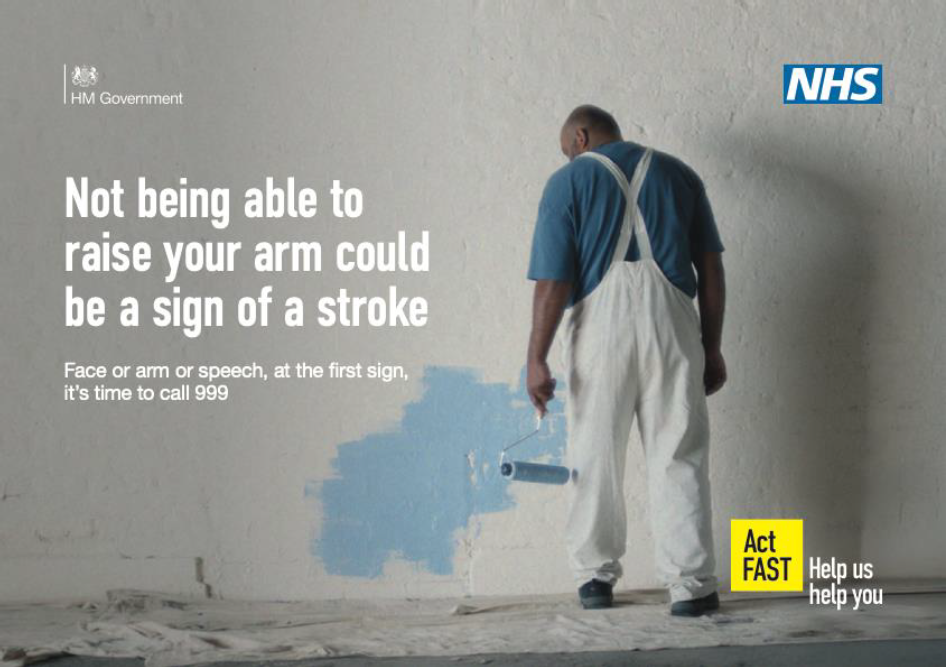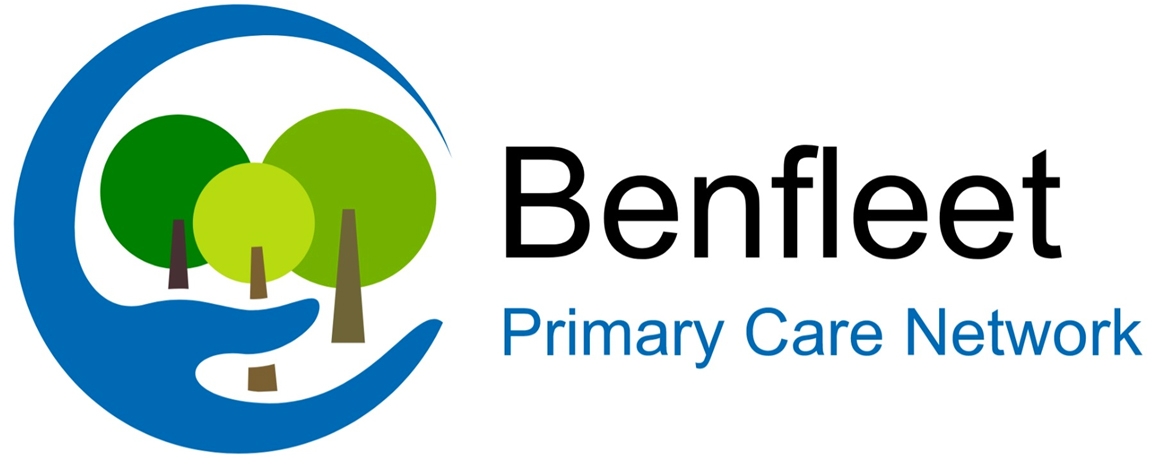The NHS England Stroke Campaign

Even if it doesn’t seem like much, at the first sign of a stroke call 999.
A stroke strikes every five minutes. Every year in the UK, there are around 100,000 strokes, causing 38,000 stroke-related deaths, and it is a leading cause of disability.*
The first sign of a stroke might not seem serious. Like not being able to raise your arm, or struggling to smile, or slurring when you speak. Stroke symptoms can be less dramatic, painful or obvious than you might expect. Even if it doesn’t seem like it, any sign of a stroke is always an emergency, so call 999 immediately if you or someone else experiences a single symptom.
A stroke is a medical emergency that requires immediate attention as every minute is vital. Acting FAST on any sign of a stroke gives stroke patients quicker access to specialist treatment that can be life-saving and could reduce the long-term effects such as a disability.
Whether it is a friend, loved one or even a passer-by, dialling 999 quickly saves lives.
Case Study: Dionne Hudson, 58, Surrey
When Dionne Hudson’s arm went numb one evening in July, she assumed it had been from lying on it as she sat on the sofa. She went to pick up her phone, but felt a strange feeling in her hand as though she couldn’t reach or grip her phone. When the numbness did not go away, the thought crossed her mind that she might be having a stroke she checked for other signs of a stroke in the mirror. Although she couldn’t raise her arm and keep it up, her face and speech were unaffected, so she assumed that it couldn’t be a stroke and went to sleep. When she woke, her symptoms had worsened and her leg also felt weak, so Dionne called 999. Within 25 minutes of making the call, she was in hospital having a CT scan. Dionne had experienced an ischaemic stroke and was partially paralysed on the left side of her body. Doctors told her that it was a miracle she had survived the stroke but warned her that recovery could take up to a year. Defying the odds, Dionne returned home after only eight days in hospital, where she now continues her rehabilitation. While she is still in the very early stages of recovery, Dionne is feeling positive about the future and is already able to do a number of tasks that she was unable to do following her stroke.
Face or Arm or Speech, at the first sign, it’s Time to call 999. Visit www.nhs.uk/ActFAST for more information.
BSL (British Sign Language) users can make a BSL video relay call to 999 using the 999 BSL website or app. Visit 999BSL.co.uk
Text relay users can call 18000 to contact 999.
If you are a BSL user, deaf, have hearing loss or communication difficulties you can text 999 by registering your phone in advance. Visit www.emergencysms.co.uk

*Prevalence | Background information | Stroke and TIA | CKS | NICE
